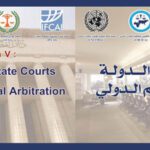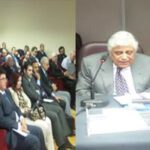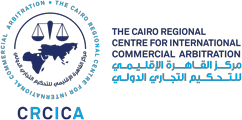
Issues Regarding of the Arbitration Agreement in Investment Disputes
Dec 03 2014
On 3 December 2014, Mr. Mohamed A.H. Madkour, Partner, Head of Dispute Resolution at Ibrachy & Partners delivered a lecture entitled "Issues Regarding of the Arbitration agreement in Investment Disputes". The lecture handled the most peculiar aspects of arbitration agreements in investment disputes stressing the importance of accurately drafting its provisions to avoid complications that might arise in the course of settling as crucial type of disputes as investment disputes are. The lecture was very well received and have triggered critical practice-based discussions.
View Details
Emotions in mediation: the key to making smart choices
Nov 24 2014
In CRCICA's monthly mediation breakfast seminar, Dr. Alexander shed the light on emotions in mediation as a fundamental factor in making decisions. It was emphasized that the recognition of one's and others' emotions in mediation is fundamental to manage and best deal with them and, hence, make smart decisions.
Attendees, drawn from the legal and engineering field, recognized the need to give appropriate attention and deal properly with emotions in mediation as a tool to reaching successful settlement.
View Details
Sharm El Sheikh V: The Role of State Courts in International Arbitration,
Nov 16 2014
Vision
SHARM ELSHEIKH V followed several successive legal and judicial developments in the Arab world that have led to remarkable reforms with respect to the settlement of commercial and investment disputes in general and commercial arbitration in particular. A number of extremely interesting decisions have been rendered in most of the Arab states during the last two years. These decisions are worth of examination and scrutiny due to their important role in emphasizing the supportive, parallel and supervisory role of state courts in international commercial arbitration. It is undisputable that state courts play an important role to determine whether a particular place is convenient to be chosen as a seat for arbitration. The Conference aimed therefore to identify the salient judicial trends in the Arab world and to shed light over the latest judicial practices in the most significant seats of arbitration worldwide, including Europe (France, England, Switzerland, Sweden and Italy), Asia (Turkey), Africa (Sudan, Morocco and Tunisia), the United States and Latin America (Venezuela and Brazil). It attempted to study these trends by tackling the role of state courts during the four basic phases of the arbitration process starting from the arbitration agreement, the arbitral tribunal, the arbitration proceedings and ending with the arbitral award.
Agenda
Through 6 working sessions, the agenda was tackled by almost 30 celebrated international figures from all continents around the globe. Prof. Dr. Ahmed El-Kosheri who was most recently granted the GAR's prestigious lifetime achievement award was the Keynote Speaker.
The Structural pattern of the agenda was based on the role of state courts during the four basic phases of the arbitration process, namely, the arbitration agreement, the arbitral tribunal, the arbitration proceedings and the arbitral award. Most recent, and most controversial, court decisions on arbitration were discussed by national judges and national courts' leading counsels in different jurisdictions as well as international arbitration practitioners all over the globe.
The conference provided floor for most recent arbitration issues. For the first time in the Arab World the new UNCITRAL Rules on Transparency in Treaty-based Investor-State Arbitration was arrayed. Similarly, discussions tackled the new IBA Guidelines on Conflicts of Interests and the Use of Advance Waivers in ICC Arbitration.
The program also presented new, and controversial, concepts affecting or likely to affect the due process of arbitral procedures, such as the Academic immunity of Arbitrators and the role of the emergency arbitrators. For more details, please view the detailed report of the Conference in English and Arabic.
Conferees
There was a total of 220 participants in attendance from 28 countries being Algeria, Austria, Australia, Bahrain, Brazil, Egypt, France, Germany, India, Iraq, Italy, Jordan, Lebanon, Morocco, Palestine, Qatar, Saudi Arabia, Sudan, Sultanate of Oman, Sweden, Switzerland, Syria, UAE, UK, USA, Tunisia, Turkey and Venezuela.
SHARM ELSHEIKH Conferences: An Overview
SHARM EL SHIEKH Series of Conferences is the WORLD's SOLE international biennial conference on «The Role of State Courts in International Arbitration». This biennial event is known to have established a permanent venue for practitioners from all over the world for the exchange of pragmatic thoughts on the renovating relation between state courts and arbitration in a cross-cultural context.
Since 2005, SHARM ELSHIEKH conferences have been organized in cooperation with the United Nations Commission on International Trade Law (UNCITRAL), the International Federation of Commercial Arbitration Institutions (IFCAI) and the Arab Union for International Arbitration (AUIA).
The idea of SHARM ELSHIEKH Conferences first blinked in the CRCICA/UNCITRAL joint Regional Judicial Colloquium held in Cairo in 2002. Upon the unique success of the widely attended Colloquium, the UNCITRAL encouraged CRCICA to keep up the tradition of holding similar events as a methodical follow up on the changing relations between the judiciary and arbitration.
CRCICA and SHARM ELSHEIKH Conferences :
CRCICA launched the fifth round of its important biennial conferences with a remarkable international support and wide professional acknowledgment emerging out the Centre's contributions to the world of international arbitration.
Despite changing political circumstances in the past years, CRCICA held a very successful round of its SHARM ELSHEIKH conferences in November 2014 with the participation of representatives from 30 countries.
Such a stance attracted international attention, materialized in the Global Arbitration Review (GAR)'s granting CRCICA a prestigious international award as the best regional centre in the world in 2013 for its successive achievements regardless of the political climate in the region.
Equally significant, in its official survey on some African arbitration Centres, the African Development Bank (AFDB) selected CRCICA as one of the best arbitration centres in the African Continent.
View Details
Why and When to be Mediate
Oct 30 2014
On 30 October 2014, the Mediation Breakfast Seminar titled "Why and when to Mediate" was delivered by Hazim A. Rizkana, Partner, Helmy, Hamza & Partners, a member of Baker & McKenzie International. The speech unveiled the core motivation fostering the decision to resort to mediation and provided interesting guidelines as to how to estimate the convenience of this flexible dispute settlement mechanism to a dispute.
View Details
Reflections on the Settlement of International Economic Disputes
Oct 23 2014
On 23 October 2014, Prof. Dr. Georges ABI-SAAB, delivered a lecture entitled "Reflections on the Settlement of International Economic Disputes". Prof. Dr. Abi-Saab is Emeritus Professor of International Law at the Graduate Institute of International Studies in Geneva, and Member of the Institute of International Law; Former Chairman of the Appellate Body of the World Trade; and Member of the Administrative Tribunal of the International Monetary Fund, and of various international arbitral tribunals (ICSID, ICC, UNCITRAL, CRCICA).
The lecture adopted a comprehensive approach towards the settlement of international economic disputes out of Prof. Abi-Saab's valuable experiences. Attendees were particularly interested in the effect of changing international economic circumstances on the settlement of disputes.
View Details
